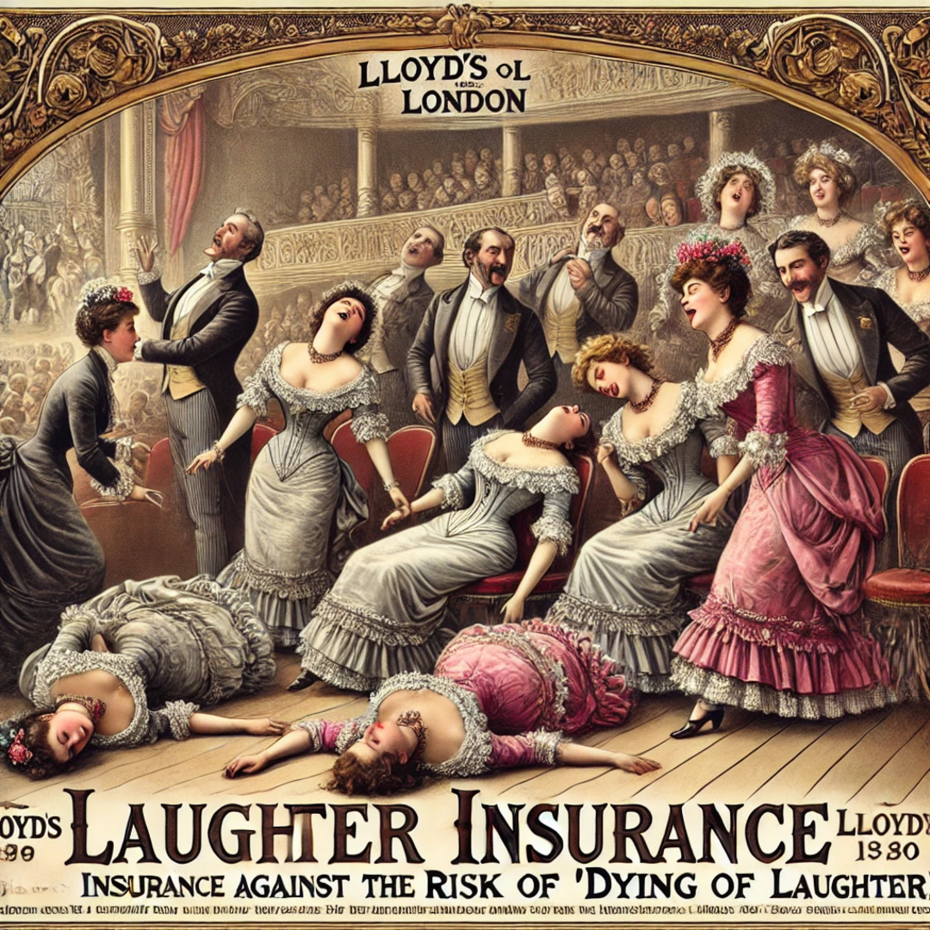The deadly risk of a laugh
Who hasn't heard the saying “much laughter, little wisdom”? This proverb suggests that anyone who laughs too much is someone who doesn't take life seriously, reflecting a conservative and disciplined view of human behavior. Laughter is often discouraged, especially in more formal environments, such as professional ones. However, this view has been increasingly considered outdated, as today the value of laughter and lightness is recognized as essential elements for balance and emotional well-being.

Historically, men were brought up to be rational, controlled and emotionally reserved, while women were seen as more emotional and sensitive. Although displays of female vulnerability were sometimes considered charming and exotic, any more intense emotional expression was frowned upon. The prevailing social norms said that for a woman to be considered virtuous, she had to appear modest, shy and controlled.
The fashion for wearing corsets in Victorian England was in line with the behavioral and aesthetic norms in force at the time. This body-shaping accessory was made of a rigid fabric structure reinforced by steel fins or whalebone. This resulted in a limitation of women's breathing capacity due to the compression of the internal organs. Situations such as fits of laughter and sneezing could result in profound discomfort, and even fainting, as they required more space for the lungs to expand than that provided by corsets. From this era comes the belief that women were very sensitive creatures who had to control their emotions, otherwise they might faint or worse.
It was during the Victorian era that the expression “ laugh yourself to death” was coined. What other culture would suggest that laughter could be dangerous? If you look through history, there have been very few times when someone has died of laughter. And curiously, they were all men.
It is said that Chrysippus, a philosopher from ancient Greece who was an adherent of Stoicism, was one of these people. The stoic school emphasizes the importance of reason, virtue and self-control as ways to achieve a full and peaceful life. However, it is reported that he lost his self-control when he got his pet donkey drunk on wine and then asked his slaves to bring him a plate of figs so that the animal could have a full meal. Chrysippus would have found this scene so funny that he died laughing!
Another fatal victim of a laughing fit was the Scottish intellectual Thomas Urquhart. Upon learning that Charles II had been elected the new king of England, Thomas had an uncontrollable fit of laughter that cost him his life.
Taking advantage of these stories that wandered through the popular imagination and the frequent fainting spells of society ladies, Lloyd's of London created an insurance policy at the end of the 19th century against the risk of dying from laughter at comedy shows. This insurance would have been offered at the shows of the famous English comedian Dan Leno, who was known for his hilarious performances. The idea of creating this type of insurance was a marketing move that aroused a lot of curiosity in the public, making it an example of creative advertising
Remember Chrysippus I told you about earlier? If he had known that only a few fragments of his immense oeuvre remained to tell his story, he would surely have lost all his good humor and lived a longer life.
Translated with DeepL.com (free version)
Voltar
